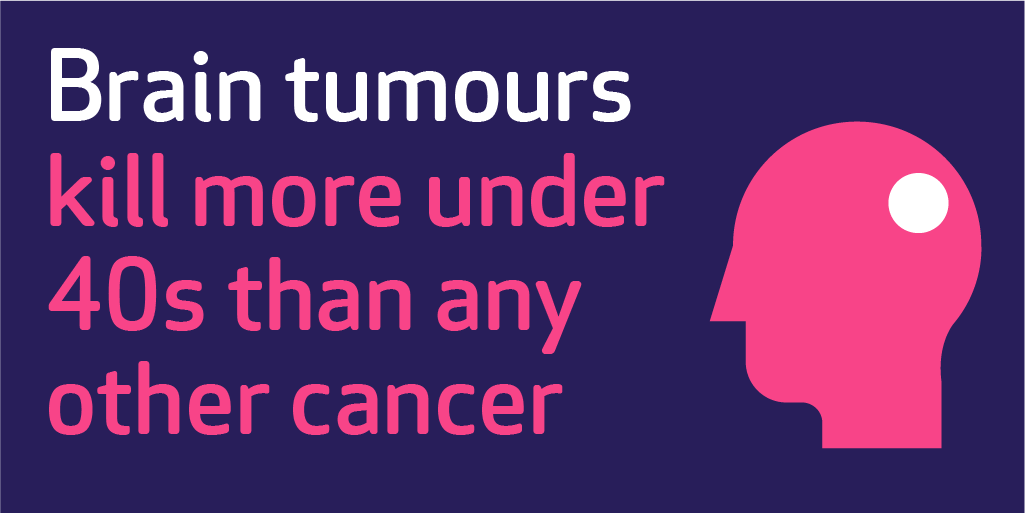Brain Tumour Awareness Month
One in three people know someone affected by this devastating disease, with over 60 000 people currently living with a brain tumour in the UK.
'Brain tumours are indiscriminate; they can affect anyone at any age. What’s more, they kill more children and adults under the age of 40 than any other cancer. Yet historically just 1% of the national spend on cancer research has been allocated to this devastating disease.' Brain Tumour Research
Brain tumour symptoms and signs
There are a number of brain tumour symptoms and signs, depending on the type of brain tumour and its location. Symptoms can be very severe or may not be apparent at all.
Symptoms are abnormal changes you have felt, and signs are what other people have observed about you, such as, a weakness in an arm or leg, or having difficult with speech.
If you are experiencing symptoms or signs that are concerning you visit your GP.
Symptoms:
Headaches - Headaches which are more severe in the morning and wake you in the night. They are usually different from headaches you might have had previously and will be persistent and worsen with time.
Nausea and vomiting - With a headache this can indicate increased pressure in the head (raised intracranial pressure).
Seizures - A seizure is abnormal electrical impulses in the brain, causing sudden involuntary changes in movement or function, sensation, awareness, or behaviour. A first time seizure in an adult is often investigated.
Weakness, loss of sensation or numbness- This is a sign of pressure on (or damage to) a specific part of the brain and can also be manifested through walking unsteadily or lack of coordination (ataxia) or muscle weakness on one side of the body (hemiparesis).
Hearing loss- Could be a sign of an acoustic neuroma if it occurs only on one side.
Loss/disturbance of vision, including double vision- In one or both eyes could be a symptom, if there is a tumour pressing on the optic nerve or there is one affecting the visual pathways or if there is raised intracranial pressure.
Speech difficulties- May also include the loss of ability to write, speak or understand words. A person may have difficulty getting the right words out (expressive dysphasia) or difficulty articulating them (dysarthia).
Other possible brain tumour symptoms -Lack of concentration, confusion, memory loss, disorientation, drowsiness, change in behaviour.
Support:
If you have questions, want information or support about brain tumours and the affects on everyday life you can call the Brain's Trust 24/7 Helpline: 01983 292 405 or email: hello@brainstrust.org.uk



